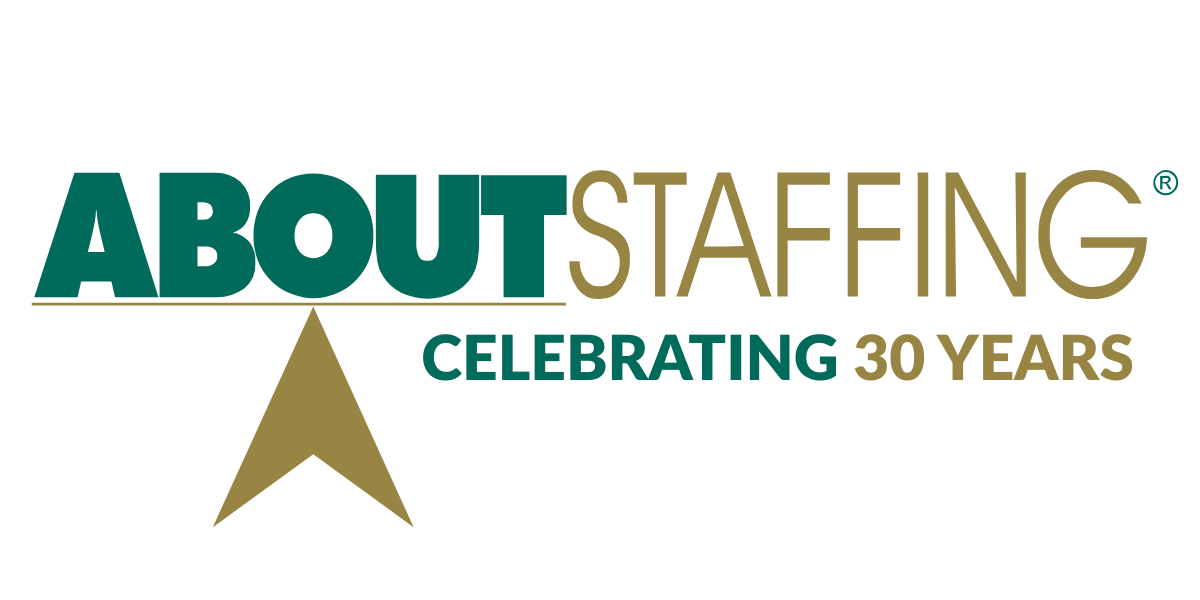The job application process can be daunting, especially if you have not had to search for a job in a long time. To make finding a great job easier you may want to consider applying for in-demand jobs in Canada. There are many requirements when submitting an application, and these may vary depending on the position that you are applying for, or the industry that the job is in. One of the common requirements that you will likely find across the board is a cover letter. You will want to ensure that your cover letter is concise, well written, and presents you in the best possible light.
Read on to learn more about what a cover letter is, and how you can write a good one.
What Is a Cover Letter?
If you are not familiar with what a cover letter is, you are likely going to have trouble writing a good one. That is why it is important to fully understand what a cover letter is, so that you will be able to deliver what employers are expecting and looking for. Typically, a cover letter is a document that accompanies your resume. It can be considered a more fleshed out and personalized version of your resume when applying for a job. However, it is also important that you do not simply regurgitate your resume in your cover letter.
Your cover letter will introduce you as a person and allows you to talk about why you are excited about the position, as well as to explain why you would be well suited for the role in a way that your resume cannot fully convey. Essentially, a cover letter allows you to connect the dots between your accomplishments and the job you are applying to.
If you haven’t already tailored your resume to the job description (you should) then cover letters are a great opportunity to show the hiring manager why you are better than other candidates for the role. You can dive into how you meet or even exceed the job requirements and the value you can bring.
Starting Your Cover Letter
Often, the beginning of your cover letter can be the most important part. Of course, you will want to go into depth further on in regards to your skills and qualifications, but a cover letter with a poor introduction may leave a bad taste in the mouth of your potential employer. This is because your introduction is basically your first impression, so you want to be sure that you make a good one! Below, we go over some tips to make a strong introduction when you are composing your cover letter.
Make it Personal
One overlooked element of cover letters is how to address them. If you can avoid starting with “Dear Hiring Manager” you should. The best way to start a professional cover letter is by addressing it to the person who will be reading it. If the first thing the person reading your cover letter sees is their own name it is a great way to grab their attention. You will find that it isn’t always possible to know who is receiving your cover letter and in that case, you should be sure to keep the greeting inclusive, professional and as specific as you can.
For example: ” Dear [Company name] Recruiter, Dear [name of the department you are applying to], etc.
Convey Enthusiasm
A great way to make a good impression and catch the reader’s attention is to lead with enthusiasm. For instance, if you are already a fan of the company or their products, make mention of this in your introduction. You can also express your enthusiasm for the position yourself. Enthusiasm in a cover letter is important because it often translates to highly motivated employees.
Lead With Your Accomplishments
Another way to lead your cover letter is to start off by mentioning a few of your accomplishments. You can do this by calling out an impressive accomplishment, and then by taking the next step to show how this accomplishment had a ripple effect. This can show potential employers that you know how to get results, and that you will be able to do so at their company, too.
Mention a Mutual Connection
Sometimes, you may have been referred to a company or a position by a mutual connection, but that still means you have to go through the typical hiring process. That being said, the introduction of your cover letter is a great place to name drop this connection and remind hiring managers that you are well connected. They will surely want to know why someone they respect has recommended you for the role, so it will help to grab their attention and pique their curiosity about your application.
Writing the Body of Your Cover Letter
After the introduction of your cover letter comes the body of the letter. This is where you go into greater detail about qualities such as your education, past work experience, and any skills or qualifications. You should connect these to the job that you are applying for so that it makes sense and is relevant– if you are talking about qualities that are completely unrelated to the position and do not illuminate why you think they would add value, hiring managers will likely decide that you are not a good fit for the role.
Do Not Simply Repeat Your Resume
One of the most important tips for writing the body of your cover letter is to avoid repeating the information in your resume. Obviously, hiring managers can read, so they can read what you have already put in your resume. If you just repeat everything from your resume, you waste their time and also waste your cover letter– instead, you could have been using your cover letter to expand on your skills and explain why you are a valuable asset to their team.
To avoid being discarded along with the other extremely generic cover letters make sure your resume and cover letter are separate entities working towards a common goal. If you simply repeat your resume as many others do, the opportunity presented by an effective cover letter to land your dream job can be lost.
Tell a Story
Rather than only listing your experience or qualifications, tell a story. By telling a good story, we mean that you should expound on some of the features that make you a unique candidate so that hiring managers can imagine what you could possibly bring to the table. Instead of simply saying that you have great organizational skills, for instance, write about how you strengthened your organizational skills while interning in an office and learning their filing system.
There are plenty of ways that you could do this, depending on your industry. The great thing about this method is that it better proves that you have these skills, too! It can also be a way to showcase how well you will fit in with the company culture.
Organize Your Body Paragraphs
You should also avoid trying to jam too much information into your cover letter. When you do this, you run the risk of overwhelming hiring managers, and you will likely not be able to properly explain all of the skills or qualifications that you are mentioning. What you should do instead is structure your body paragraphs so that you only focus on one or two qualities in each paragraph. This allows you to fully explain these skills and to do them justice by explaining how and why they would be a benefit to the company if you are hired.
Try to choose your strongest qualities to talk about, but be sure that they are also related to the job responsibilities and expectations that are outlined in the job description.

Closing Your Cover Letter
Once you are done with the body of your cover letter, you will want to wrap it all up with a strong, concise conclusion. Your conclusion should drive your points home and leave readers with a good understanding of who you are and what you can do. We go over some tips for crafting a conclusion below.
Be Confident
First things first, you should exude confidence in your conclusion statement. You want to conclude your cover letter on a high note. You should also reiterate your interest in the position, like you should have done in your introduction. Be confident enough to request an interview and invite employers to contact you if they have any questions. However, you should be sure that you are not being pushy and that your confidence does not come across as being arrogant. Focus on being upbeat and positive.
Explain Your Value
You have already gone into depth about the value that you could bring to the position in your body paragraphs, but it does not hurt to include them one more time in your conclusion. You can do this by mentioning some of your key skills or work experience, so that it reads as a quick summary of the body paragraphs. Try to keep this short and sweet. Otherwise, you run the risk of this turning into another body paragraph, rather than a conclusion.
Don’t Focus on Your Needs
It is considered bad form to focus on your own needs and long term career goals in your cover letter. A cover letter should be an introduction to what you can do for the company and what sorts of skills you can bring to the table. You should avoid using your cover letter to discuss your career goals, because it can come across as self-serving.
Additional Cover Letter Writing Tips
When writing a good cover letter, you will want to pay attention to the formatting and key elements, but there are also some practices that you should take into account during the process. Take a look at the following tips and be sure to take them into consideration.
Keep It Short and Sweet
It is typically recommended that you keep your cover letter under one page. Anything else will be too long– it is important to keep it concise, because hiring managers have a lot of applications to go through. Your cover letter should not skimp on the details when they are important, but it is generally advised that you write a cover letter that can be read at a glance.
Pay Attention to Your Tone
If you’ve ever taken a writing class, you know that tone can make or break a piece of writing. You do not want to go overboard with flattery, for instance, because it will come across as insincere, or like you are trying to suck up to the hiring managers.
You also do not want to sound desperate! If you are stretching the truth or being generally inauthentic, the hiring managers will usually be able to tell– and if they do not realize it while reading your cover letter, they will be able to tell if you come in for an interview! It is best to be honest and to keep a professional and mature tone when crafting a cover letter.
Structure
We have talked about structure throughout the article as it is important to ensure a successful cover letter. If you need some further guidance consider using a cover letter template. There are a ton of options out there and if you’re looking for inspiration rather than guidance, search for some cover letter examples or cover letter samples to get you started.
The typical structure consists of 3-4 paragraphs. An introduction, 1-2 body paragraphs pitching yourself, and a conclusion.
Edit
Once you think you’re finally done writing your cover letter, take a breather and let it sit before sending it out. Then, come back to the last cover letter step with a fresh mind and prepare to edit it well. You’ll want to look out for any glaring errors, such as typos or run-on sentences. You should also pay attention to any erroneous or unnecessary information that you can cut to make your cover letter shorter and more concise.
Another way to edit your cover letter is to get some outside feedback, especially from people in similar positions if possible. Make sure that this is okay before you send it off, and mention the particular things that you are looking for feedback on so that they can laser-focus their editing eye! Asking for feedback is helpful because others may be able to identify issues that you can’t see.
The Key Elements of a Cover Letter
All cover letters share some key characteristics. Use the checklist below to ensure that your cover letter is not missing anything before you send it out.
- Personal information (name, address, phone number) in the top left-hand margin
- Date
- Contact person’s personal information
- Greeting
- Introduction
- Body paragraphs (typically two)
- Conclusion
Position Specific Cover Letter Information:
Frequently Asked Questions
How do you start writing a cover letter?
When you are starting off your cover letter, you should first explain the position that you are applying for and who you are– the beginning of your cover letter is like your introduction! If you were referred by a mutual friend or contact, you can mention this in the beginning of your cover letter as well.
What are the 5 tips for writing a cover letter?
There are plenty of tips out there for writing a strong cover letter, but some of the best are as follows: don’t simply recite your resume in the letter, make it clear why you are excited about the position, include information relevant to the position you are applying for, edit thoroughly, and send it as an attachment, rather than in the body of an e-mail.
What 3 things should be included in a cover letter?
When writing a cover letter, you should be sure to include your introduction, sales pitch, and conclusion. Your introduction is where you introduce yourself and mention the job you are applying to. Your sales pitch is where you go into more detail about your skills and qualifications to pitch yourself, hence the name. Your conclusion should reiterate your interest in the position.
What to not put in a cover letter?
When writing a proper cover letter the idea is that you are able to showcase your value in a concise manner. To avoid creating a lengthy, uninteresting mess here are some things you should avoid including in your cover letter.
Salary Expectations: This is something that should NOT be discussed before necessary. Leave this information out of your cover letter and instead, you can address it in the interview. If you prematurely mention a number that doesn’t sit well with the employer they often won’t give you a chance to showcase why that number is worth it.
Personal Information: Keep the information in your letter professional and leave your personal life out of it. If the hiring manager wants to know what you do in your spare time they will ask during the interview. Anything not related to the position and your qualifications usually will do more harm than help to your chances of getting an interview.
Negativity: Do not talk about past employers in a negative way in your letter. In general, this should be avoided as there are always two sides to a story and this can hurt your chances of landing the job. Only talk about what you took away from the company and how it has better prepared you for the position at hand. Relevant experience only.
Exaggerations: It’s okay to highlight the skills that allow you to provide value for the company but exaggerating is a great way to put yourself in an awkward situation further into the process. Stick to claims you can back up and keep it short. Try to focus on the important requirements and leave out the fluff.
How To Make Your Cover Letter Stand Out
Cover letters were designed to get you the interview. Let’s face it; to stand out from the crowd, where all letters can look the same, you have to say something that will grab the reader’s attention.
1. Your opening statement should indicate the type of position you are applying for and how you heard about it. You will read that in any cover letter information but here’s the trick. In addition, state why you want to work for that company. Do your research and remember that flattery will get you everywhere.
Here is an example: “I want to work for About Staffing as a Sales Representative because your reputation for growth and excellence in customer service is the best in the city.” I would look twice at that statement.
2. Tell the reader what you can do for them. In this information-oriented, deadline-driven age, implying a concrete result from merely hiring you should at least land you an interview.
For example, “I can introduce About Staffing to 200 new clients within the next year.”
Just be sure you are able to follow through with what you say you can do, no matter what that is, because the employer will likely hold you to it.
3. Tell the employer what your biggest accomplishment has been – one accomplishment. Do not repeat what is on the resume. Inform the reader of the most brilliant thing you have done in the work world. It could be anything that is measurable.
Finally, conclude your letter with something like: “Thank you for your consideration. I am available to meet with you to further discuss my background and qualifications at your convenience. I can be reached at 555-1234. I look forward to your response”.
One final note: remember to put your name and phone number on the top and bottom of the page.
Since you have now come up with the perfect cover letter, you want to make it as easy as possible for the interviewer to contact you.
Good luck!

